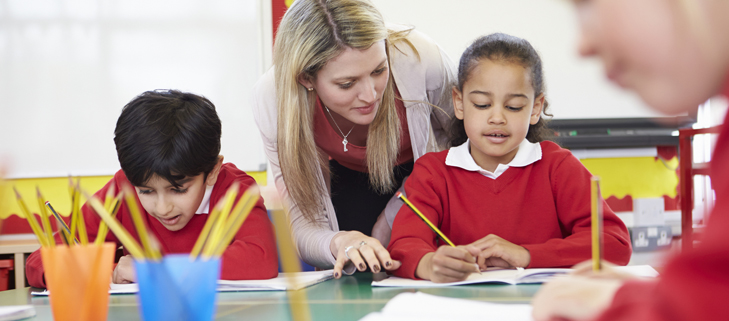Primary school teachers lose more than a million hours of lesson time each year toilet-training children and teaching them basic hygiene, according to new research.
A report by health and hygiene company Essity found a fifth of primary school teachers spend up to 30 minutes a week cleaning up children after they have been to the toilet.
This equates to more than a million hours of lost teaching time over the course of an academic year, the researchers said, and costs the education system £11 million based on teachers’ average salaries.
The report was based on interviews carried out by YouGov with more than 400 primary school teachers, 500 parents and children earlier this year. Essity also found that 44% of children avoid using the school bathrooms at some point every week, while 11% do so every day.
One in 10 primary school teachers said they have seen children not eating or drinking in a bid to avoid using school toilets, while 60% rate pupils’ toilet hygiene as poor.
It found 4.7 million primary school children actively avoid defecating at school and a quarter of primary school teachers and pupils describe hygiene levels in schools as poor or very poor.
The risks of children not going to the toilet when they need to include dehydration, bladder infections and potential bowel and continence problems in later life, the report’s authors said.
A fifth of those questioned said no checks were made on school toilets during the day.
A further 59% of primary school teachers believe improving toilet hygiene in schools would reduce illness among children, teachers and other staff.
Kevin Starr, managing director at Essity UK, said: “There’s clear evidence to suggest that, by not paying enough attention to hygiene levels in primary school toilets and the hygiene behaviours of the children who use them, we risk undermining all the fantastic work that is going on elsewhere in our schools and in education in general.
“Schools and local authorities are trying to do their best with limited budgets and resources. Spending more money isn’t an option and we don’t believe it’s the answer either.
“Our aim in highlighting these issues is to open up a dialogue with schools, parents, health experts and local authorities and work with them, using the collective expertise and experience to identify simple and easily implementable solutions to tackle the issues, with little or no cost to schools.
“By doing this, we aim to improve health and well-being, reduce absenteeism and increase self-esteem and confidence of children in the UK.”
Essity will be working with teachers, local authorities and health professionals through its School Hygiene Essentials Initiative to improve toilet hygiene. It plans to pilot these measures in a number of schools to assess their impact on children’s education and well-being over a six-month period, before the schools’ system potentially rolls them out more widely.

